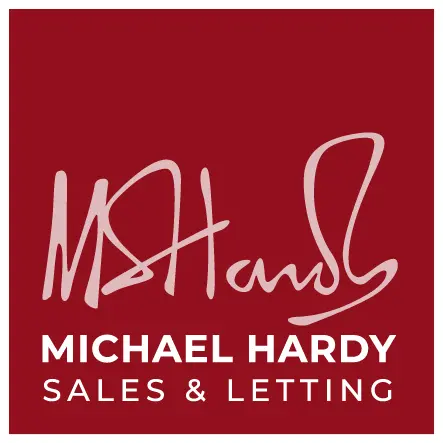As a tenant of a rented property, it’s incredibly important to know your rights and responsibilities, especially if you’re new to renting. Knowing the rules inside and out will not only help protect you legally, but it will also ensure that renting is a positive experience for you, your landlord and your neighbours.
Let’s take a look at some of the key things you can and can’t do as a tenant.
What can I do as a tenant?
Tenants have a lot of rights that must be respected by their landlord. Below, we’ve detailed the most important things you can do while renting.
1. Manage entry to the property
Legally, your landlord must give you at least 24 hours’ notice before entering your rented property, unless it’s an emergency, and agree to a convenient date and time with you. You can not refuse every inspection or repair request made.
2. Have friends and guests visit
As long as they aren’t harassing or disturbing other tenants or neighbours, you are free to have friends or family visit your rented property.
3. Manage rent increases
No matter what type of tenancy you’re on, your landlord must seek your permission before increasing your rental payments. If you believe the increase is excessive, you can raise it with a government Housing Tribunal.
To determine whether a rent increase is ‘fair’, look at what similar properties in the area are charging. Bear in mind that the tribunal could recommend your rent increases if it believes your landlord is charging less than the competition.
4. Request repairs
Your landlord is responsible for maintaining the structure of the building and your home’s essential fittings. This means if the following things break (due to wear and tear) or stop working, you must notify the landlord and ask them to arrange repair work:
- Gutters
- Sinks
- Toilets
- Baths/showers
- Electrics
- Gas/boiler
- Water
- Heating appliances
If you’ve asked your landlord to repair one of the above fittings and they are refusing to do so, you can contact your local council’s housing authority, who can ensure the landlord carries out the fixes.
You cannot ask the landlord to replace lightbulbs, smoke alarms or carbon monoxide alarm batteries – it is your responsibility to conduct these basic maintenance tasks.
5. Seek help if you’re wrongly evicted
If you are evicted or forced out of the property illegally, i.e. the landlord harassed you and you did not break your tenancy agreement, there are several places you can seek help and advice from, including your local council, Shelter and Citizens Advice.
What can’t I do as a tenant?
Your restrictions as a tenant will somewhat depend on what has been outlined in the tenancy agreement, so always make sure you read this thoroughly before signing it. We recommend you seek independent legal advice if you are unsure of any aspect of the agreement. There are also things you cannot do according to the law. Read on to find out more.
1. Break any rules in the tenancy agreement
The tenancy agreement covers a lot of basic details, including when the tenancy will begin and end, the amount you will pay in rent, when it should be paid and the length of notice you must give if the agreement is to end. However, it may also contain other details, such as whether other people are allowed use of the property, if you can keep pets and if the landlord will provide any other additional services.
As long as the agreement is deemed ‘fair’, you must stick to it. If you don’t, you could face eviction.
2. Alter the rented property in any way
Unless you have made a prior written agreement with your landlord, you cannot decorate the property – this includes hanging anything off the walls, installing extra shelving, etc.
3. Use the property as a business
If you are looking to start a business from home, you must seek permission from the landlord first. The Government website has more information about the steps you need to follow when setting up a home business.
4. Sub-let the property
Again, if you wish to sub-let the property to additional tenants, it must be agreed by the landlord.
5. Damage the rented property
The landlord is not responsible for clearing up any mess or damage created by you. If you accidentally damage the landlord’s property or furniture, you are responsible for arranging and paying for any repairs or replacement needed.
6. Smoke inside the building
You cannot smoke in the majority of rental buildings, so refrain from lighting up indoors. The smoke can stain the walls, furniture and carpets and cause permanent damage.
7. Go on a long holiday without informing the landlord
Most agreements state that you cannot leave the property vacant for more than 14 consecutive days without prior notification, as this may affect the landlord’s insurance policy. Therefore, if you’re planning a three-week holiday to the USA, you must get in touch with the landlord to let them know.
8. Engage in any illegal activity
This may seem obvious, but if you want to avoid eviction (and possibly criminal prosecution), you should avoid participating in any form of illegal activity in your rental property.
9. Change utility providers without permission
Even if you know you can save money by switching to a different energy provider, you cannot do so without the landlord’s permission. Get in touch with the landlord, or us as their agent, and make a case for switching providers – they may let you!
10. Harass the neighbours
Be respectful of everyone who lives in the building – would you want to be kept up until 3am if you had to get up at 5am for work in the morning? Keep noise to a minimum and don’t leave any rubbish in the communal areas.
There’s a lot to think about when renting a property, but as long as you’re aware of the law and create a good relationship with your landlord, you should have nothing to worry about. For more renting advice, check out our property blog, browse our property to rent or get in touch with us – we’re always happy to help!

